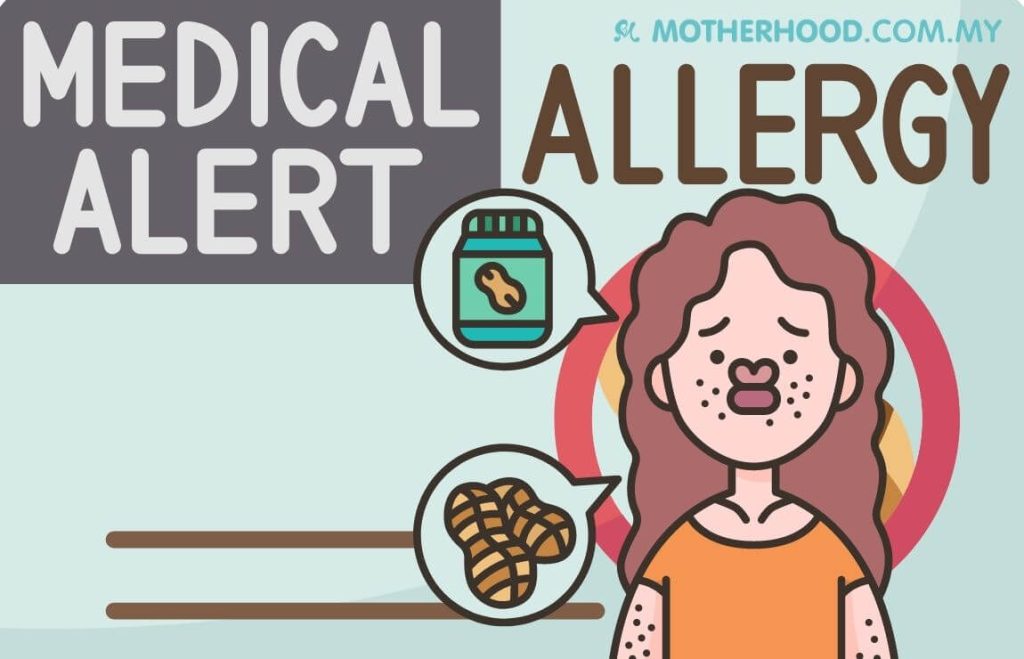Allergies have become rather common in children these days, and as a parent, this can be alarming especially if some children have severe allergies from a young age. We speak with Dr Heah Sheau Szu, a Consultant Paediatric Dermatologist at Sunway Medical Centre, Sunway City, regarding allergies in children and seek her expert advice on this topic.
Q1: What are allergies and how do they happen?
Allergies are over-reactions of a person’s immune system to things that are usually harmless to others, like peanuts, eggs, pollen, and animal dander. These things are called ‘allergens’.
Once in contact with allergens, either ingested, touched or exposed to, allergic reactions can present as itchy rashes, swellings on skin and mucosa, wheezing, vomiting, sneezing, runny nose; and fortunately, not so common, loss of consciousness.
Q2: What are some common allergies?
Common allergies include food allergies to cow’s milk, egg white, soy, wheat, fish and peanut, as well as skin, eyes and nose allergies to environmental triggers like house dust mites, pollens and pet dander.
Q3: If a parent has allergies, can it be passed down to the child?
Yes, allergic parents are more likely to have allergic children.
Q4: What can be done to minimise the chance of a baby or child from getting allergies?
Exclusively breastfeeding for at least 6 months, and start introducing complementary solid food from around 5 to 6 months old, one new food at a time, gradually increasing from a very small amount. Avoid chemicals in early life, like artificial fragrances and chemicals in cleansers and lotions.
Q5: Why are some children more prone to allergies?
We are not exactly clear why, but there often is a family history of allergies in the same family, suggesting a genetic predisposition.
Having said so, we also see the number of children with allergies is increasing each year, suggesting a modern way of living and environmental factors do play a part in causing allergies.
Q6: How quickly do allergic reactions happen?
It can be pretty fast, within seconds, or within hours. Those who get hives, swellings or wheezing typically happen very fast, so the culprit allergen is quite obvious. But some allergic reactions like skin contact dermatitis can be delayed up to 2 to 5 days later.
Q7: How do we tell the severity of symptoms of allergic reactions?
The most severe allergic reaction is Anaphylaxis, presenting as difficulty in breathing, wheezing, turning pale or blue, confusion and loss of consciousness. This needs immediate medical attention and first aid.
Q8: How does one get diagnosed for allergies?
Your general doctor or paediatrician is able to diagnose possible allergies based on your history and physical examination. Sometimes further evaluation or tests needed to be done, and you might be seen by a specialist. It is often not just one clinic visit, further close monitoring and parental observations are important to achieve a diagnosis.
Q9: How are allergies treated and managed in children?
The most effective way is to avoid the allergens. Depending on the severity of the reactions, different medications can be useful to alleviate the symptoms. E.g., oral antihistamines, decongestants, steroid inhalers, anti-inflammatory creams. In anaphylaxis though, one needs to always carry an epinephrine pen (‘Epipen’) for immediate life-saving injection in the untoward event that it happens.
Q10: Is it advisable to get allergy shots as a way to manage allergies?
There is no ‘allergy vaccine shot’ so far.
Source: Dr Heah Sheau Szu, a Consultant Paediatric Dermatologist at Sunway Medical Centre, Sunway City
Disclaimer: The information provided in this article is for informational purposes only and should not be considered as medical advice from Motherhood. For any health-related concerns, it is advisable to consult with a qualified healthcare professional or medical practitioner.
For more insightful stories and fun recipes, stay tuned to Motherhood Story!
